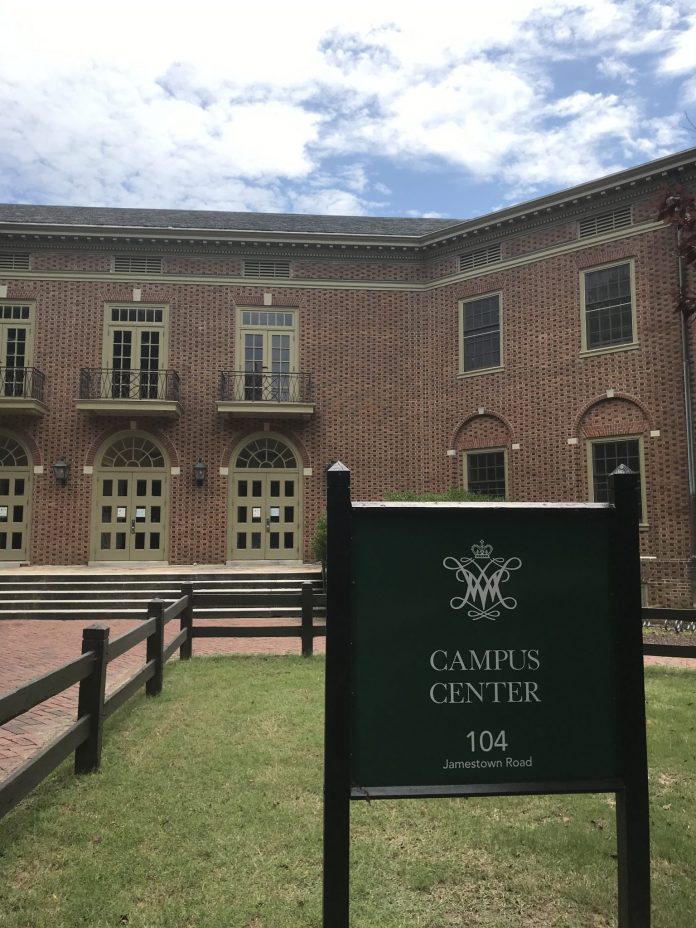Friday, Sep. 11, the Center for Student Diversity, Filipino-American Student Association and the Asian American Student Initiative hosted an information session discussing institutionalized racism in the United States and the intersecting experiences of Asian American and African American communities.
The gathering represented the first of three virtual forums comprising the Solidarity Series, events developed to support the Black Lives Matter movement at the College of William and Mary by teaching Black history, engaging in open conversations and taking action. The second event in the series, “Understanding Affirmative Action, Model Minority, and Colorism” was held on Zoom Sept. 15. The final event, “Belonging at a PW(&M)I” was held remotely Sept. 18.
Director of the FASA External Committee Camille Zeraat ’22 initiated the Sept. 11 event with a presentation on the history of anti-Black policies. She traced the role of pre-Civil War police forces in preserving slavery and examined how the Nixon-era “War on Crime” and the Regan-era “War on Drugs” policies shaped the development of the mythology of Black criminality.
“Reagan ultimately took a problem of economic inequality, hyper-segregation and drug abuse and criminalized it as a war on drugs,” Zeraat said. “The War on Drugs was a war on communities of color.”
Zeraat also questioned a loophole in the 13th Amendment, pointing out that it has allowed slavery and involuntary servitude to be used as a punishment for those who have been convicted of a crime. She also discussed segregationist legislation which ultimately opened routes towards housing discrimination. She concluded this segment by highlighting modern issues of institutional racism, including the disproportionate impact of the COVID-19 pandemic and economic crisis on Black people.
“People of color shoulder higher housing costs, and historically, once the economy rebounds, the racial gaps in income, home equity and wealth do not shrink,” Zeraat said.
After the presentation, Zeraat invited participants to share their ‘head, heart and hands,’ which means sharing something learned, something felt and something to act upon from discussion. FASA Vice President Zoe Marquez ’22 believes that this moment of vulnerability made the history instruction more impactful.
“It is extremely important for everyone to speak up and stand with the Black community; however, it is difficult to accomplish this when we have such limited knowledge on the history of institutionalized racism within the Black community,” Marquez said. “The series also creates an open space where individuals are able to voice their thoughts and opinions not only about recent events, but also about events that have been going on for centuries.”
During the discussion, many students, including event co-organizer Shreyas Kumar ’21, shared that this event compelled them to reflect on their complicity in institutional racism and advocate for reform through protest and contacting local representatives.
“Until recently, I never took the time to fully process how wrong our system has been, including the blatant racism within our housing policy, the inequities in the education program and most importantly, the fundamental flaws within our police institutions,” Kumar said. “By starting to understand and talk about the underlying issues surrounding anti-Blackness, I can no longer turn a blind eye to the injustices around me.”
Kumar added that this discussion is of particular relevance to student advocates.
“This discussion series is meant to start the long-overdue conversation about anti-Blackness in the Asian American community. … organizing this event with FASA, AASI and CSD as a student-driven conversation is crucial to reflect on our complicity in the suffering of the Black community.”
“This discussion series is meant to start the long-overdue conversation about anti-Blackness in the Asian American community,” Kumar said. “For me, organizing this event with FASA, AASI and CSD as a student-driven conversation is crucial to reflect on our complicity in the suffering of the Black community. This event series is to take those steps to not only acknowledge our faults but to take action on fixing those wrongs.”
FASA President and APIA Studies Chair Jamelah Jacob ’21 expressed similar sentiments, explaining how these conversations are intended to reinforce the importance of continued activism among Asian Americans and other non-Black people of color.
“As a non-Black POC, what I hoped for most with this event is to call my other non-Black POC peers into participating in these conversations and eventually action,” Jacob said. “Something we were really intentional about with this event was having it close to the beginning of the year as an attempt to set the tone for the discourse on campus.”
Jacob also asserted that campus organizations as a whole must be proactive in their inclusion and reform efforts.
“We’re hoping that the series reminds student organizations that we all have to be actively advocating, fighting for and standing in solidarity with the Black community,” Jacob said. “I feel a sense of urgency to uplift the voices of other BIPOC folks and being in this room has been great to have this space and get to not only learn about all of this but to know who else is out there who wants to learn and cares about these issues.”

